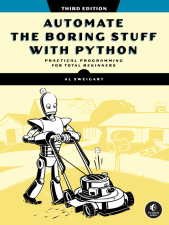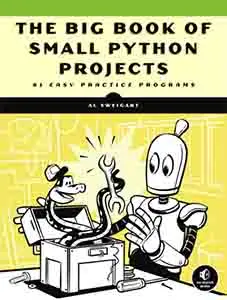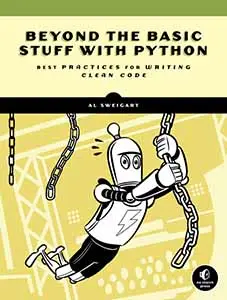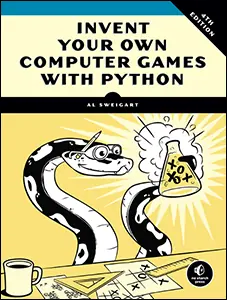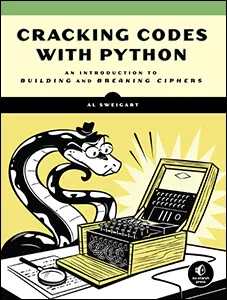Book Review: The Charisma Machine by Morgan G. Ames
Posted by Al Sweigart in misc

Five stars. Ames' The Charisma Machine covers the emperor-wears-no-clothes story of the One Laptop Per Child project, and how the technical gurus of MIT's famed Media Group set out to change the world and got it so wrong.
I remember the OLPC project. I followed news of it in the late 2000s and could get behind the idea; create a $100 laptop and give it to poor kids across the Global South and encourage them to learn to program. I loved the idea, because I had the same upbringing as the OLPC promoters who loved the idea. I was one of those kids who taught themselves how to program, making little video games in the BASIC programming language. This interest led me to major in computer science and then on to a successful career in Silicon Valley. So I thought these kids would teach themselves to program, express their creativity in code, develop a curiosity and an internal motivation to learn, become highly paid software engineers and tech entrepreneurs and Make The World A Better Place TM.
OLPC is a classic story of Silicon Valley hubris by way of MIT's famed Media Lab, but Ames does a fantastic job of dissecting the missteps, grand delusions, and false presumptions that went into constructing this fiasco. This is a book for several audiences: educators, policy makers, social workers, or even just jaded techies like me who gasp with relief that someone else has pulled back the curtain on these so-called wizards.
Ames uses the term "technically precocious boy" to identify the archetype that many in the OLPC project would identify with and, consciously or not, identify their targeted laptop-recipients as. I certainly was one of these "gifted" boys (and they were overwhelmingly boys) who taught himself to program at a young age by making little video games. I was independent, had a curiosity to learn outside of school, and had general anti-authority streak. Or at least I liked to think I did. Like the members behind OLPC, I was rather blind to the privileges I had: growing up with a PC and even internet access in the 90s and parents who encouraged my computing interest.
So I am especially primed to fall under the charisma of the One Laptop Per Child's cheap XO laptops. All these poor kids need is a laptop, and they'll follow the same path that I did and have successful careers and bring economic prosperity to their home countries and the world at large, right? Socioeconomic problems like poverty and lack of opportunity are hard; a quick, cheap technical fix can seem like a miracle. If that sounds too good to be true, it's because it is.
Not that the OLPC was a scam, but it did have some cult-like features. The charisma of the backers such as Nicholas Negroponte, who also had the connections to bring in funding and code contributions from open source volunteers, was overwhelming. The input of actual teachers, social workers, and local community organizers was glossed over, as was tracking the actual effectiveness of the program.
Ames spent months in Paraguay in the actual communities that were recipients of OLPC laptops, cataloguing the experience of students and teachers. She also saw firsthand the many shortcomings of these laptops. Some of these were simple: classrooms often didn't have enough electric outlets or power strips to sustain everyone's laptop. But some were large: kids mainly used the laptops, not for creative expression, but just to consume media on the internet. They more often played video games than programmed them.
I lived in Silicon Valley for over a decade and I've personally seen the strain of naivety of these tech-based utopian vision. Some guy will claim that he's going to teach JavaScript to homeless people and solve poverty. They never have any previous experience in education or social work, but this doesn't matter. After a few weeks, they, and the internet audience enrapture by their first blog post announcement, lose interest and quietly move on to their next venture. The One Laptop Per Child project was this, scaled up into millions of dollars spent by project funders and recipient governments, along with the countless time of open source volunteers, local teachers, parents, and the students themselves. In the end, the time and money would have been better spent on more conventional, but not-so-charismatic, educational programs.
Ames' The Charisma Machine is a cautionary tale that is important to read for anyone who follows developments in the tech industry. These institutions and companies frequently make grand claims of innovation and salvation. I, for one, appreciate Ames' efforts to expose these hollow proclamations and her guidance on how to avoid repeating their mistakes in the future.
